How Do I Download a Bank Statement to a CSV File?
Published on April 14, 2025 by CapyParse Team
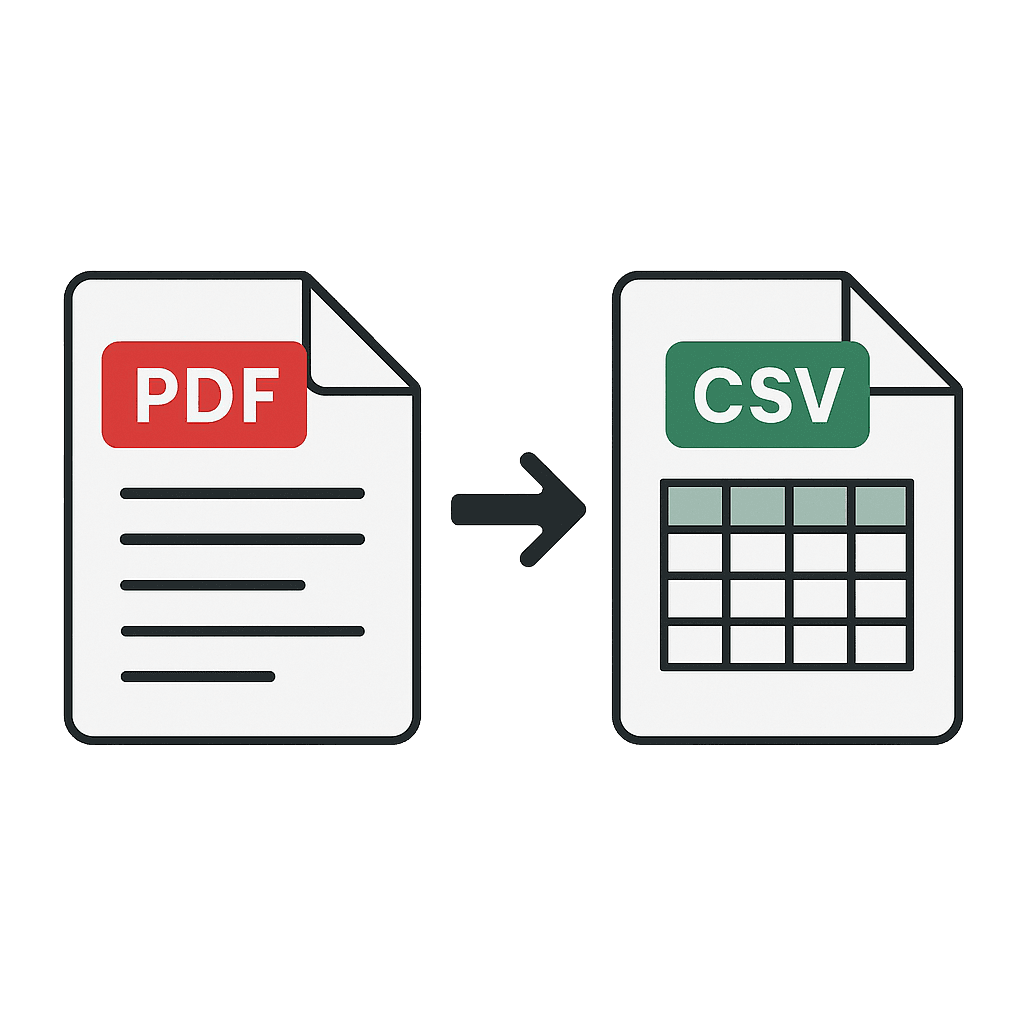
If your bank statement is only available as a PDF and you need to import transactions into QuickBooks, CapyParse makes the process effortless. Quickly convert PDF bank statements into CSV format and seamlessly import transactions into QuickBooks, eliminating manual data entry.
Quick Overview
If your bank statement is only available as a PDF and you need to import transactions into QuickBooks, CapyParse makes the process effortless. Quickly convert PDF bank statements into CSV format and seamlessly import transactions into QuickBooks, eliminating manual data entry.
Why Choose CapyParse?
CapyParse specializes in extracting financial data from PDF bank statements with exceptional accuracy -- over 99%. It reliably captures nearly every transaction, significantly reducing the need for manual corrections. CapyParse also excels with scanned or image-based PDFs, utilizing OCR (Optical Character Recognition) to accurately read text from images, or extract text from traditional PDFs.
Have a complex PDF statement containing multiple accounts? No problem. CapyParse separates transactions by account to ensure accuracy and clarity. Simply put, CapyParse streamlines the conversion process, making it fast, accurate, and hassle-free.
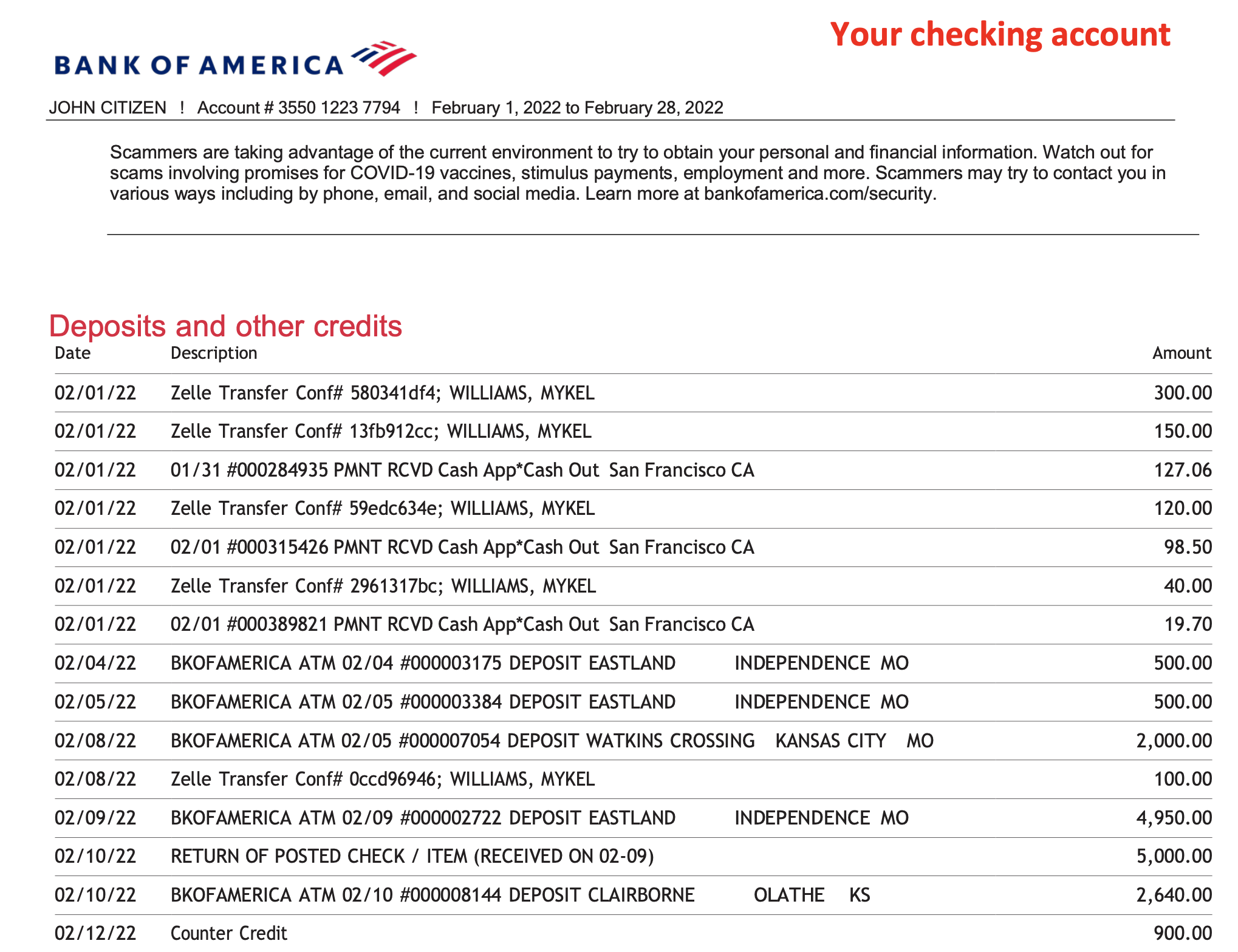
Example of a Bank of America statement
Step-by-Step Guide: PDF to CSV Conversion with CapyParse
1. Download Your Bank Statement PDF
Log into your online banking and navigate to your statement section. Download the statement as a PDF and save it to your device. If your bank directly offers a CSV download, you can skip ahead, but PDF downloads are common.
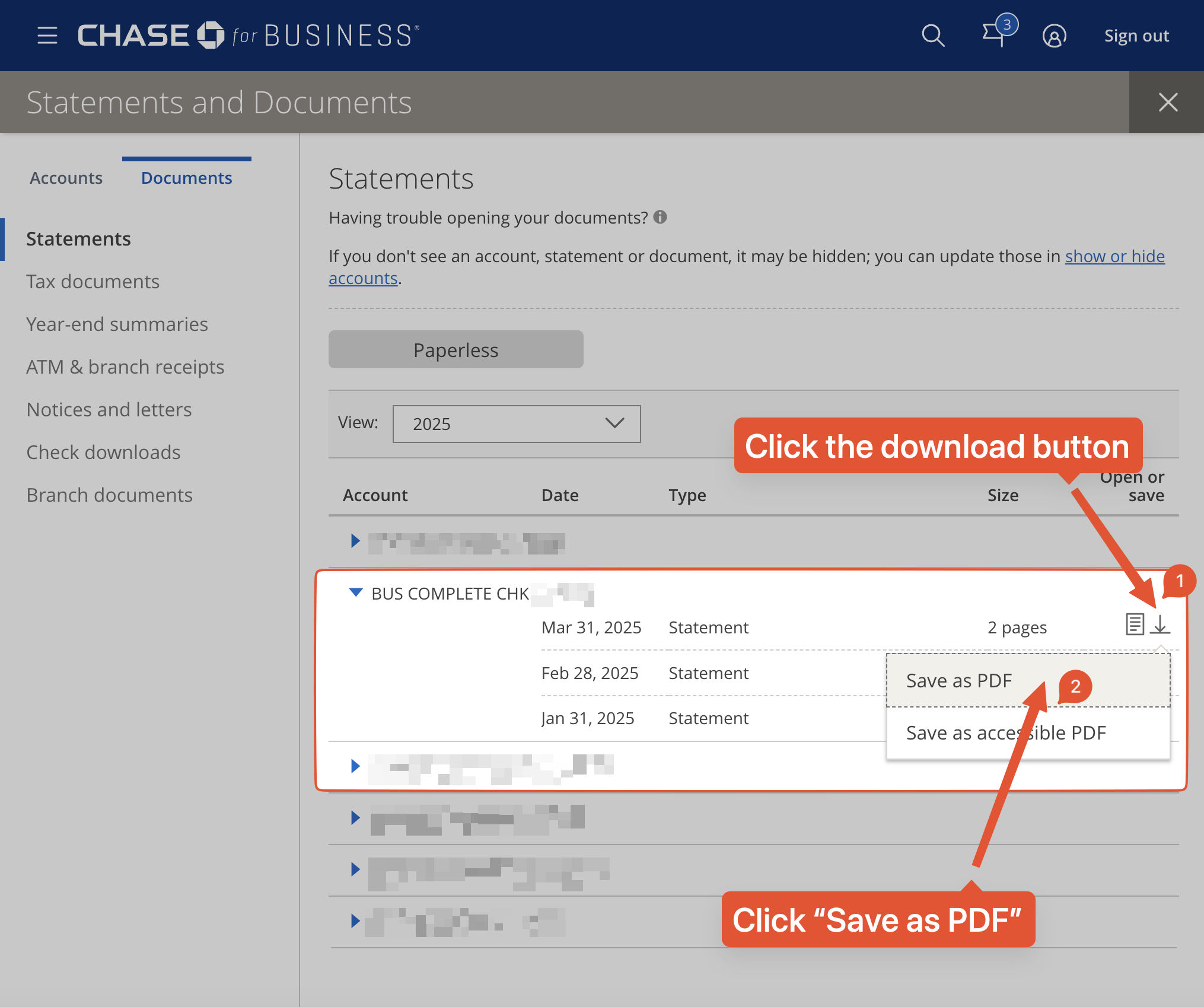
Example of downloading a PDF statement from Chase Bank
2. Upload the PDF to CapyParse
Visit CapyParse.com and locate the upload section. Click "Upload" or drag and drop your PDF onto the designated area. Sign in or create an account if prompted. CapyParse will automatically begin extracting transaction data, typically completing within seconds.
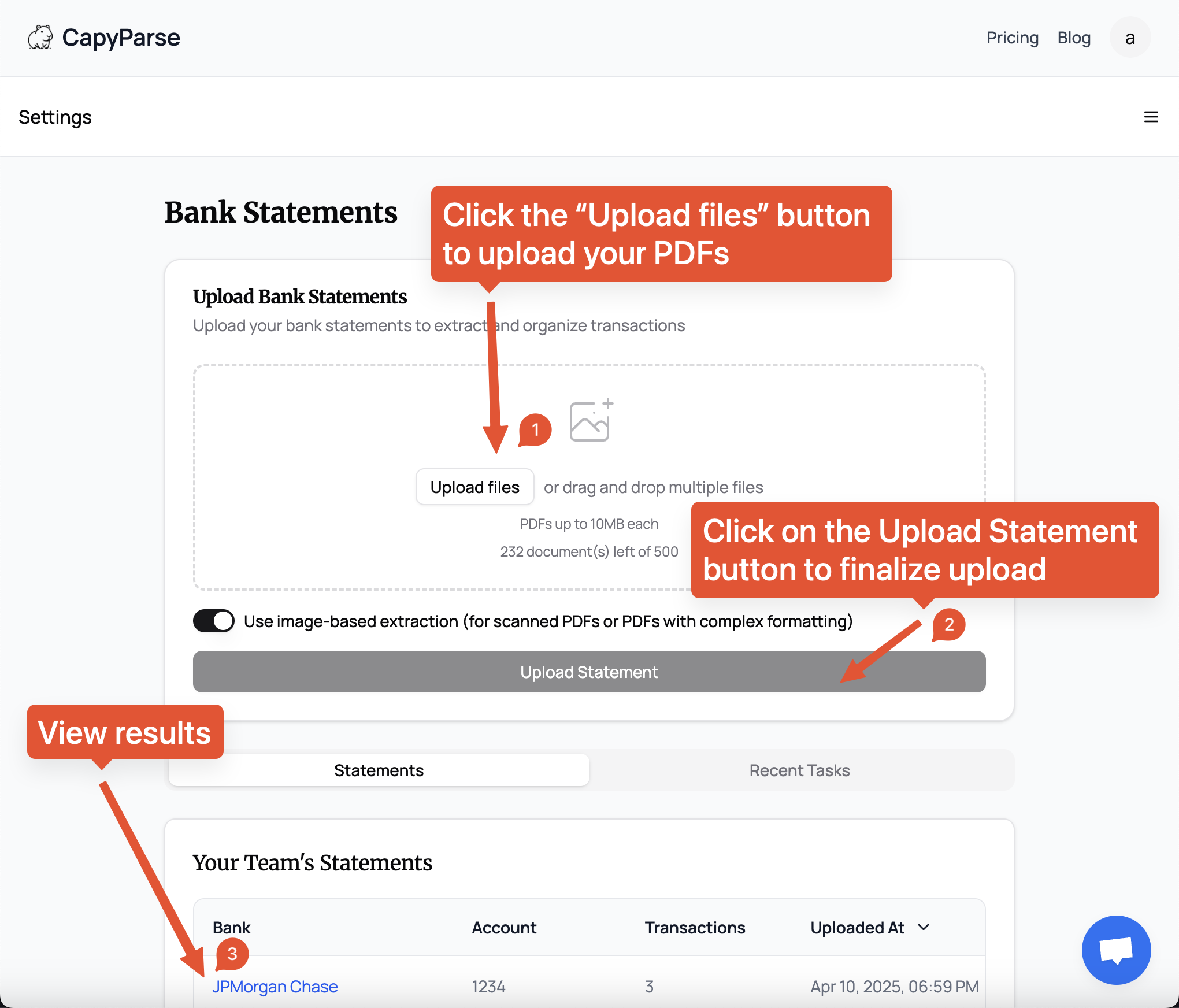
Upload your PDF statement to CapyParse
3. Review the Extracted Data
CapyParse swiftly parses your bank statement data and presents transactions in an easy-to-review interactive format. Although accuracy is exceptionally high, quickly scan the extracted data to confirm all transactions appear correct. If necessary, you can easily edit dates, descriptions, or amounts directly within CapyParse.
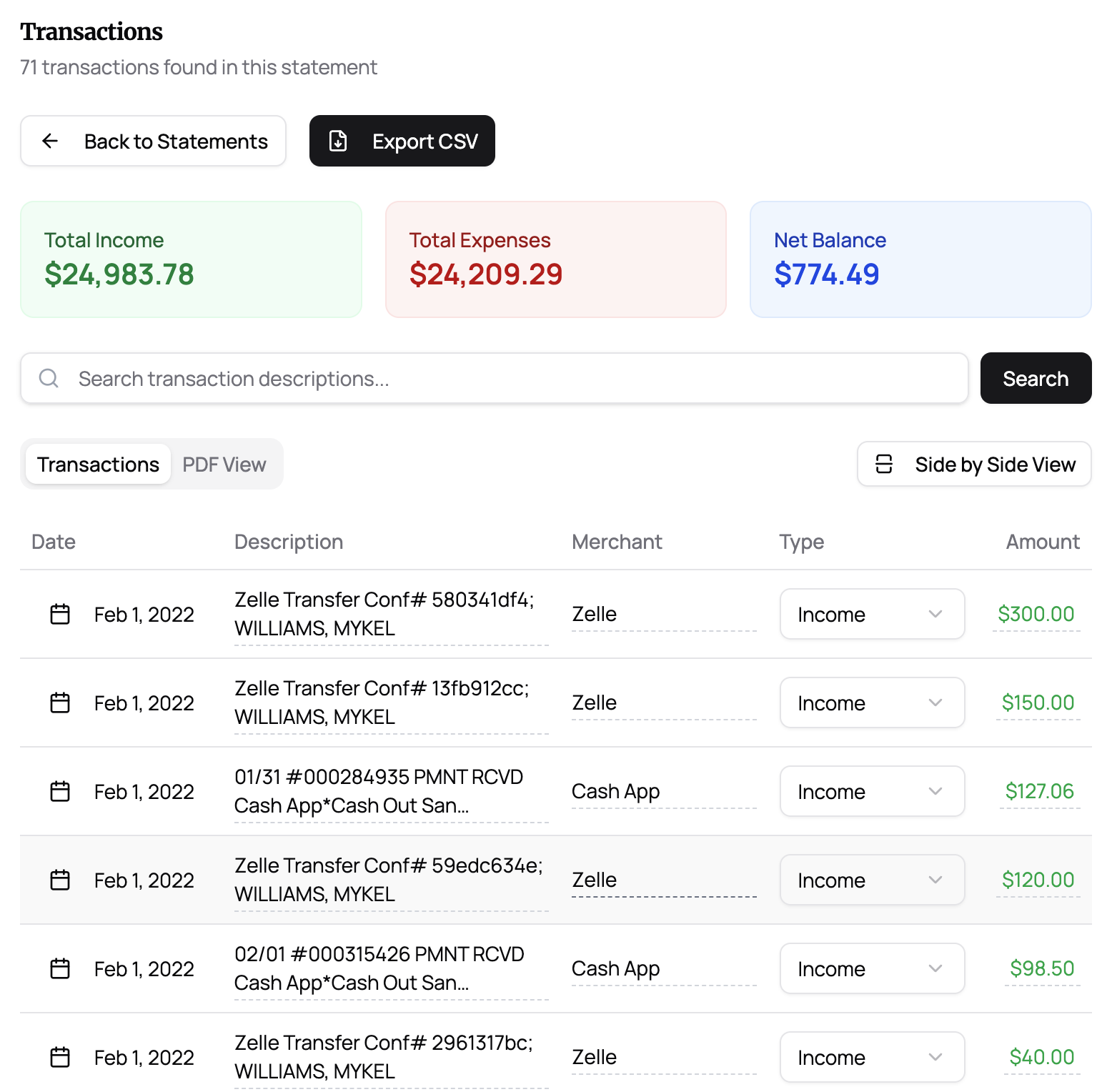
Review extracted data in CapyParse
4. Export Transactions to CSV
Once satisfied with the extracted data, select the "Export to CSV" button. CapyParse provides QuickBooks-ready CSV files formatted specifically for importing transactions. If your PDF contains multiple accounts, CapyParse conveniently exports each account into individual CSV files bundled within a ZIP folder. For single-account statements, you'll directly download a CSV.
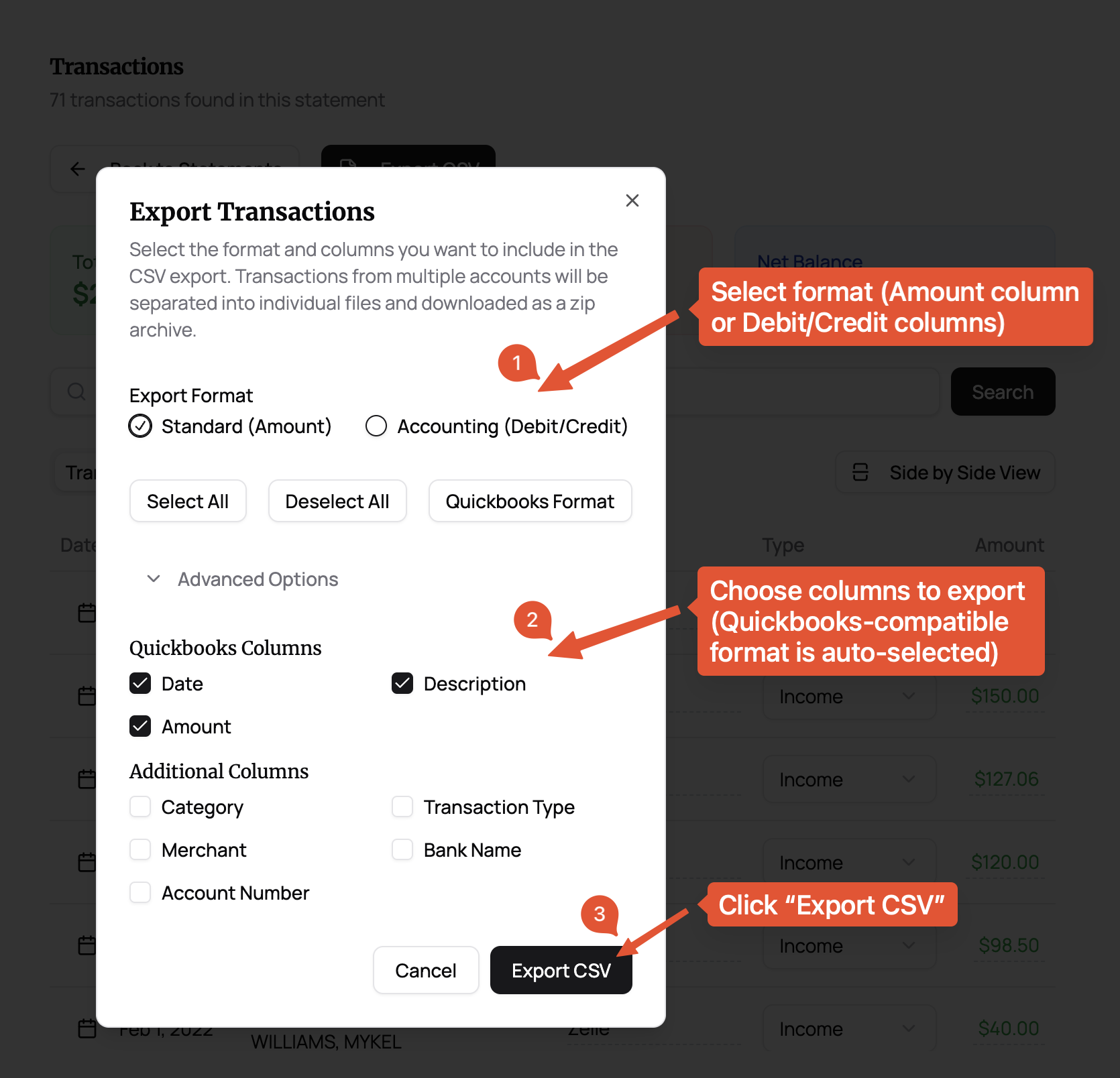
Export your statement transactions to CSV in CapyParse
5. Review CSV File
After exporting the CSV file, open it in a spreadsheet program like Excel or Google Sheets. Review the data to ensure it matches your bank statement. If any transactions need correction, you can edit them directly in the CSV file.
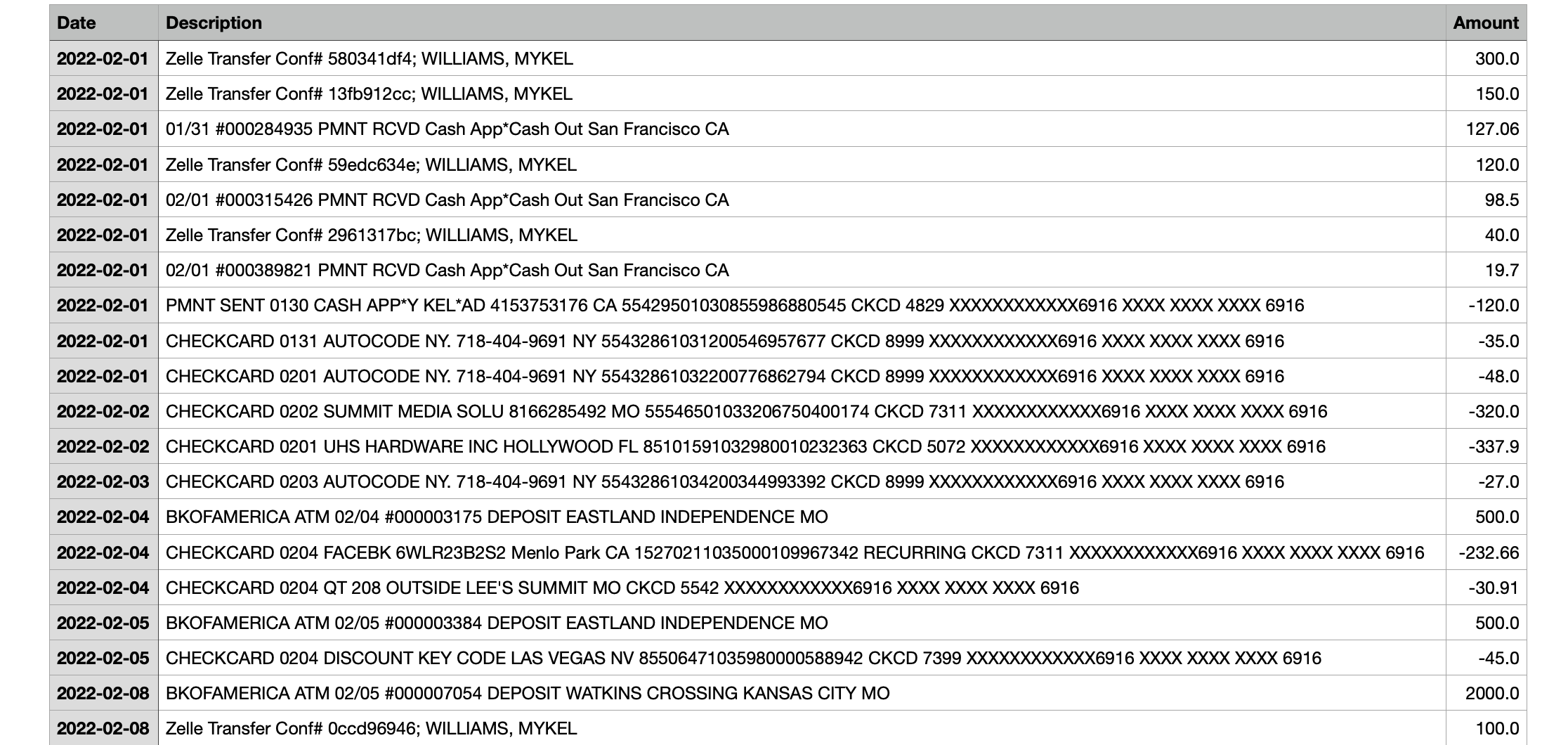
Review exported CSV file
6. Import CSV into QuickBooks
Open QuickBooks and navigate to the Banking or Transactions menu.
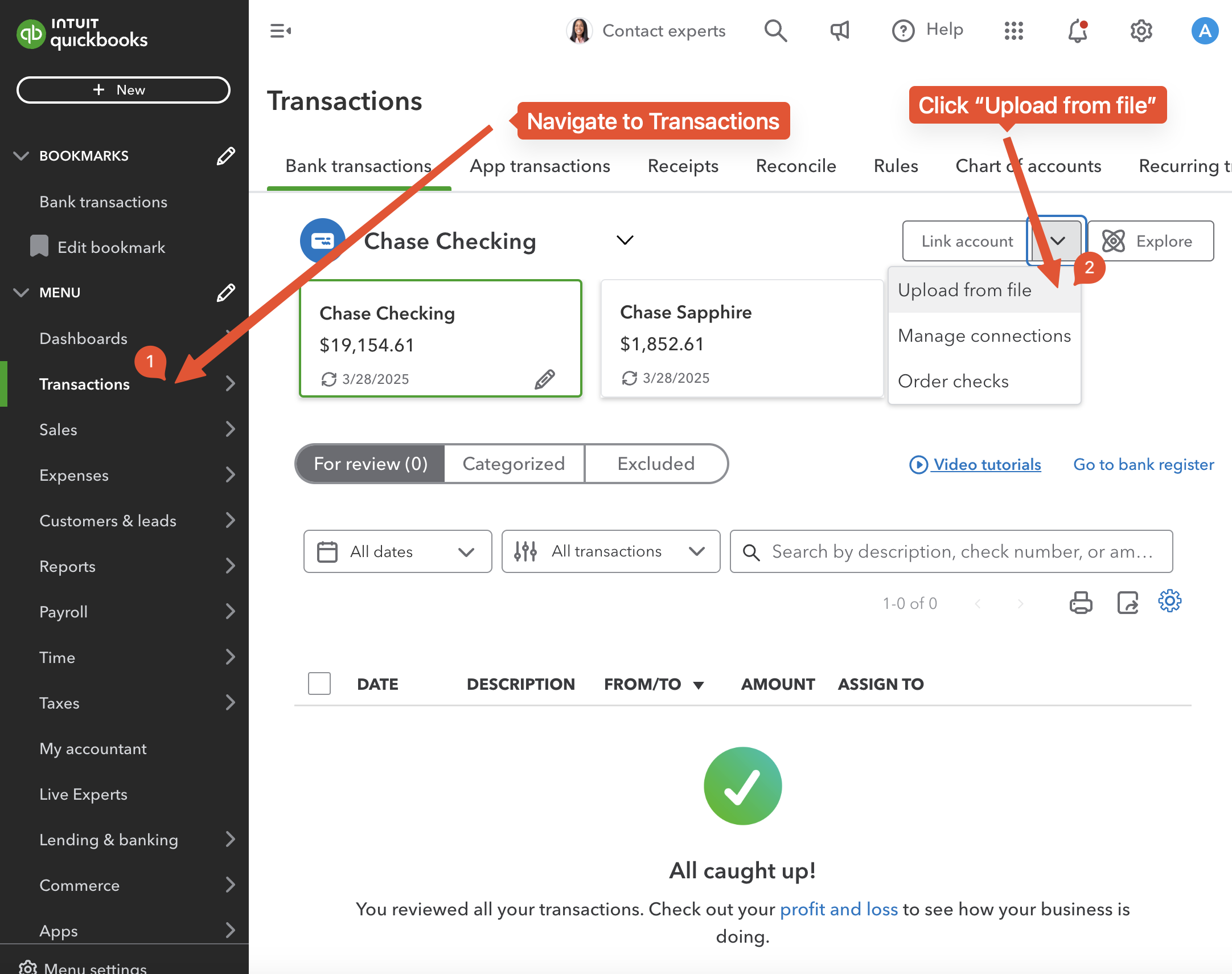
Start with the Transactions menu in QuickBooks
Click on the button to manually upload transactions from a file.
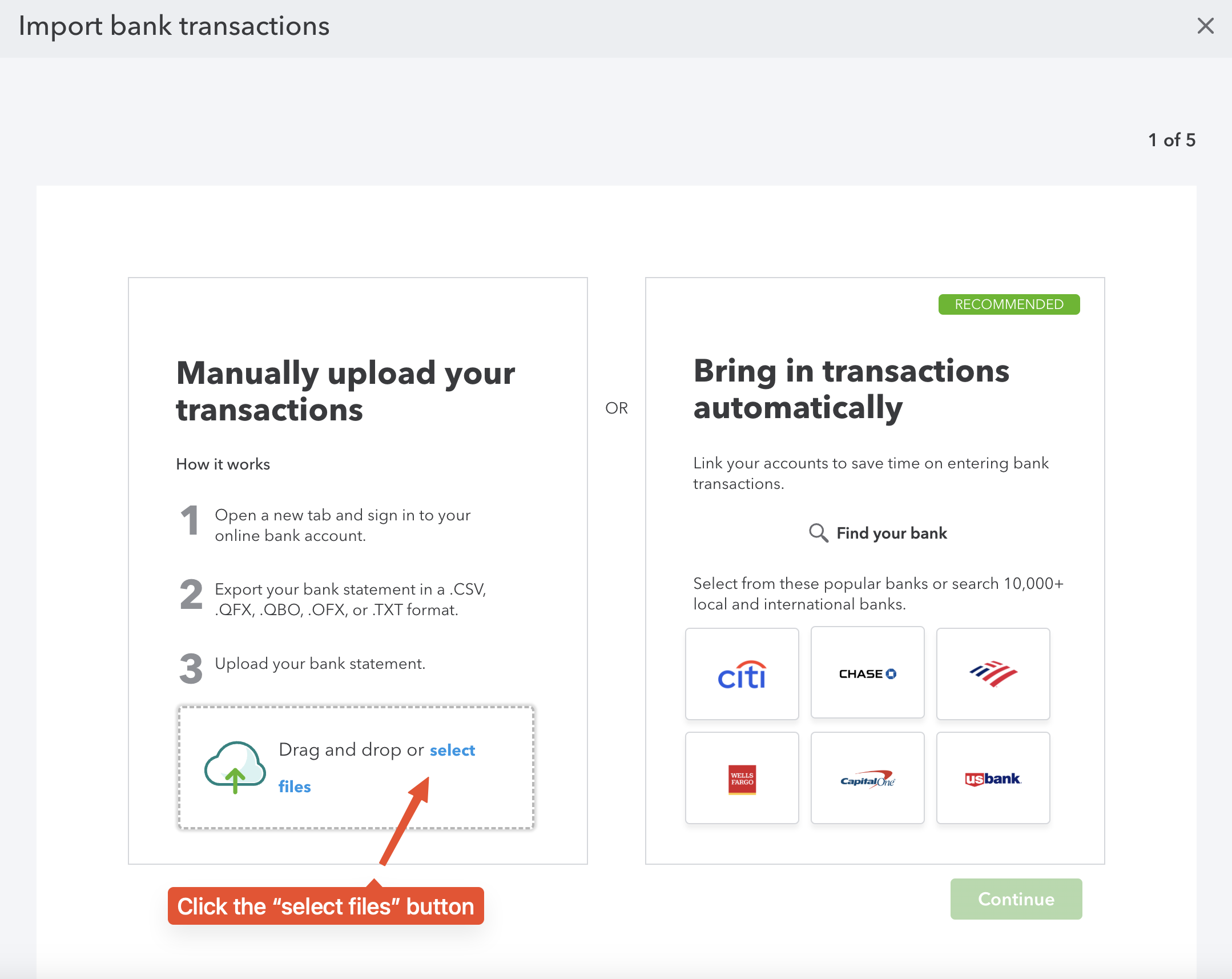
Click on the QuickBooks file uploader
Your file should be selected and the file name should be visible at this point. From the dropdown menu, select the correct QuickBooks account associated with your CSV file (checking, savings, or credit card), and then click Continue.
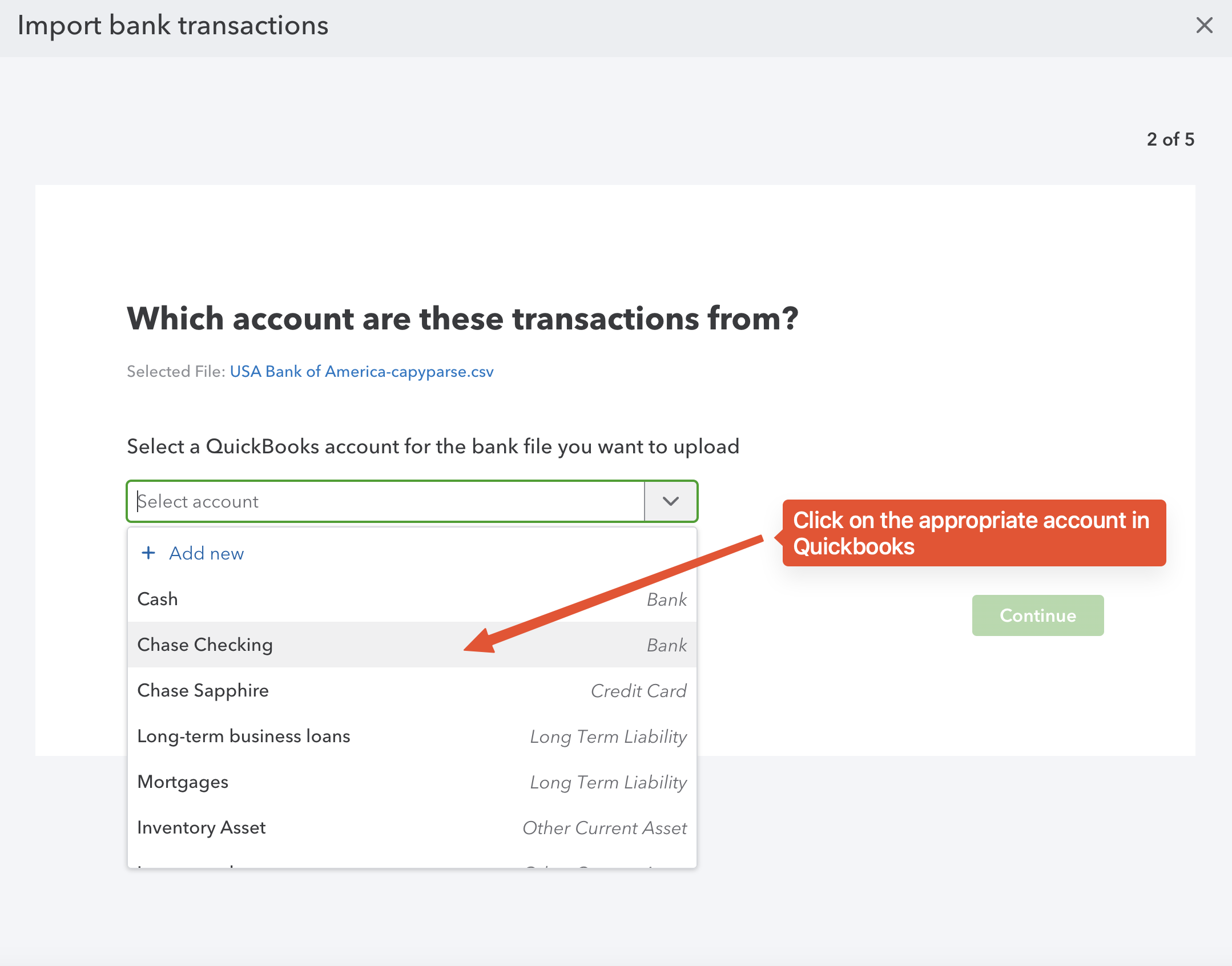
Select appropriate QuickBooks account type to import transactions into
CapyParse's CSV format simplifies the import process, automatically mapping fields like date, description, and amount.
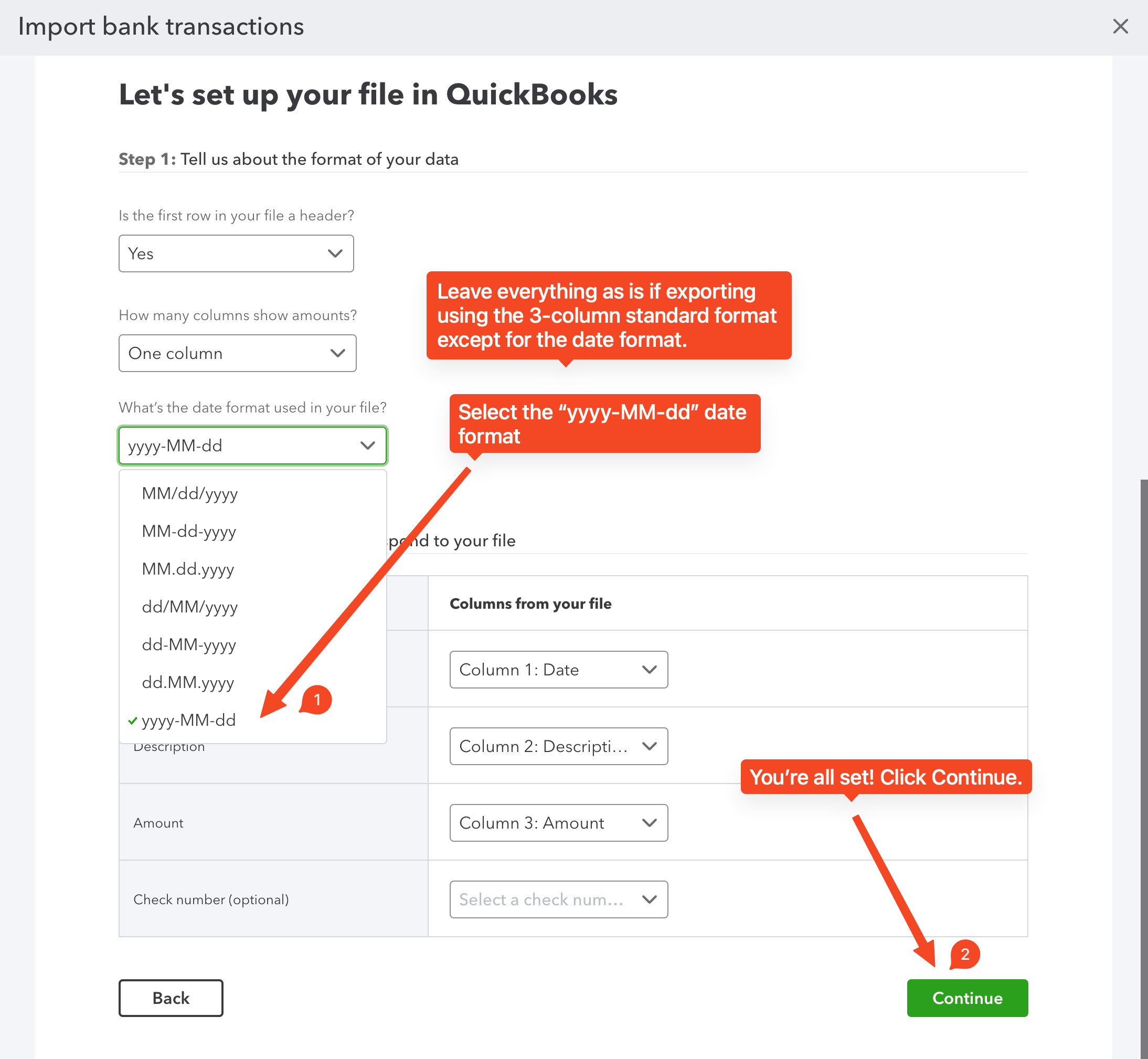
Configure imported CSV fields and formatting
Review the imported transactions and select the ones you want to import. Discard the ones you don't want to import.
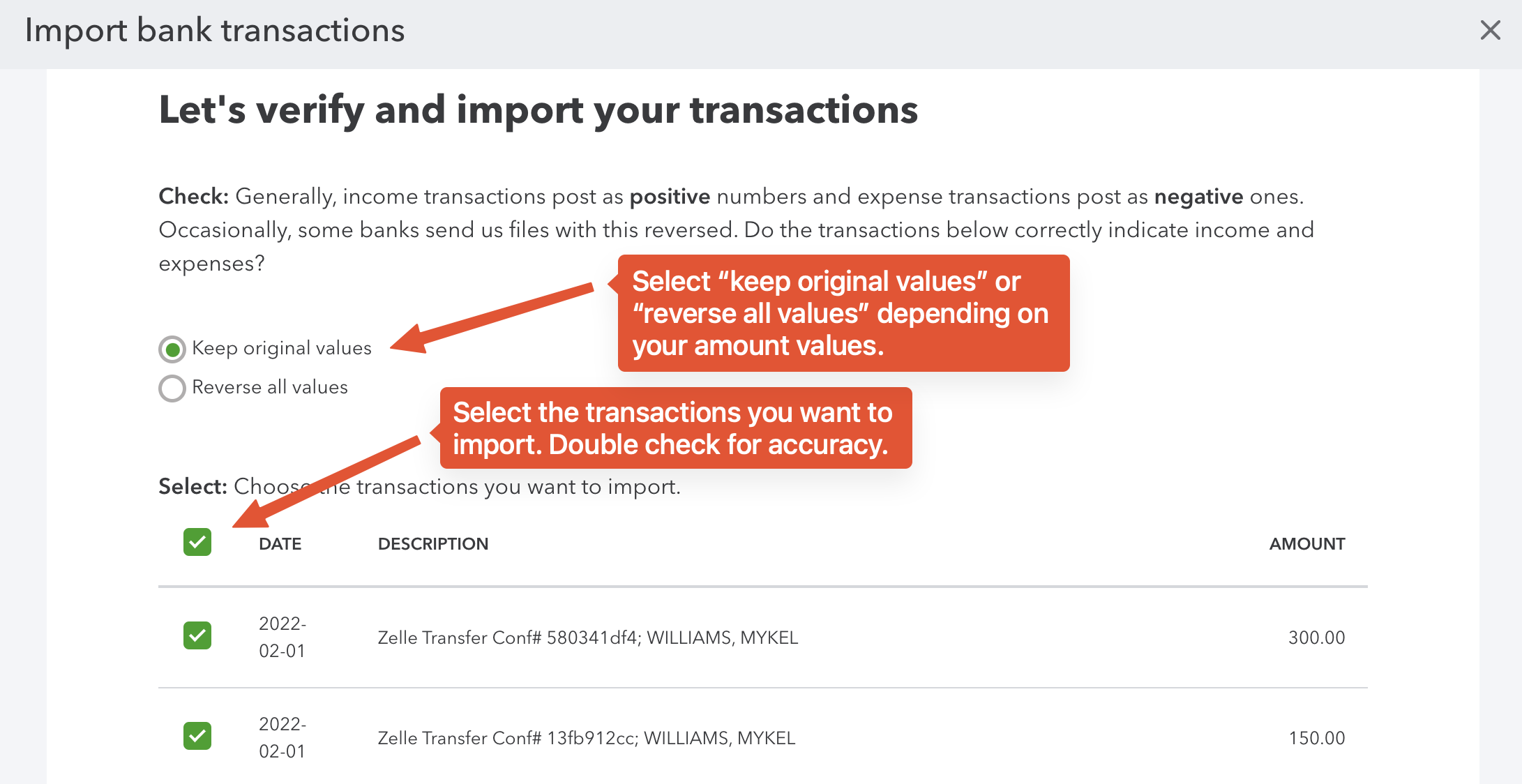
Verify imported transactions from the CSV into QuickBooks
Select continue.
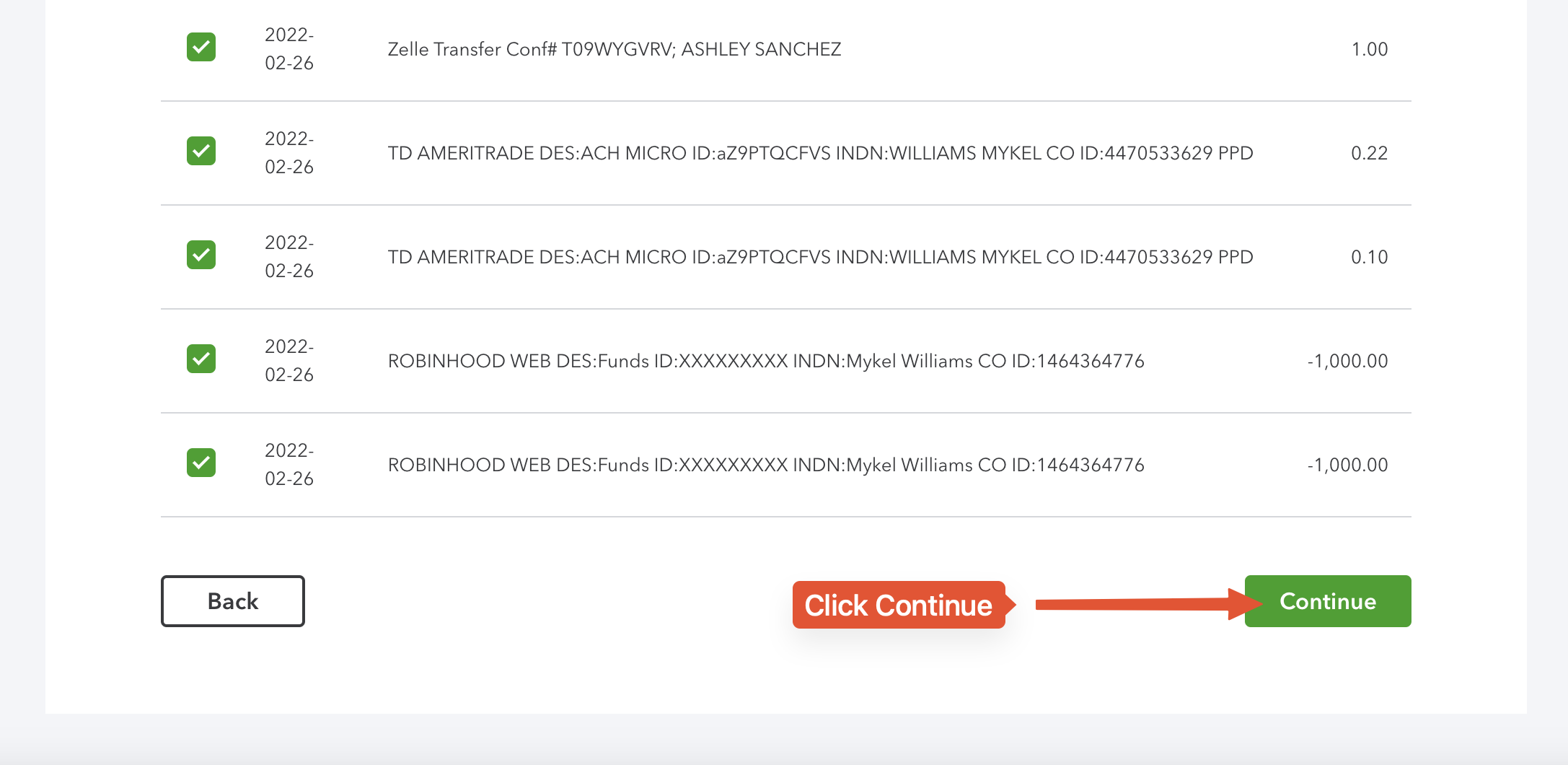
Verify imported transactions from the CSV into QuickBooks
Once uploaded, QuickBooks displays the transactions ready for review and integration into your accounting records.
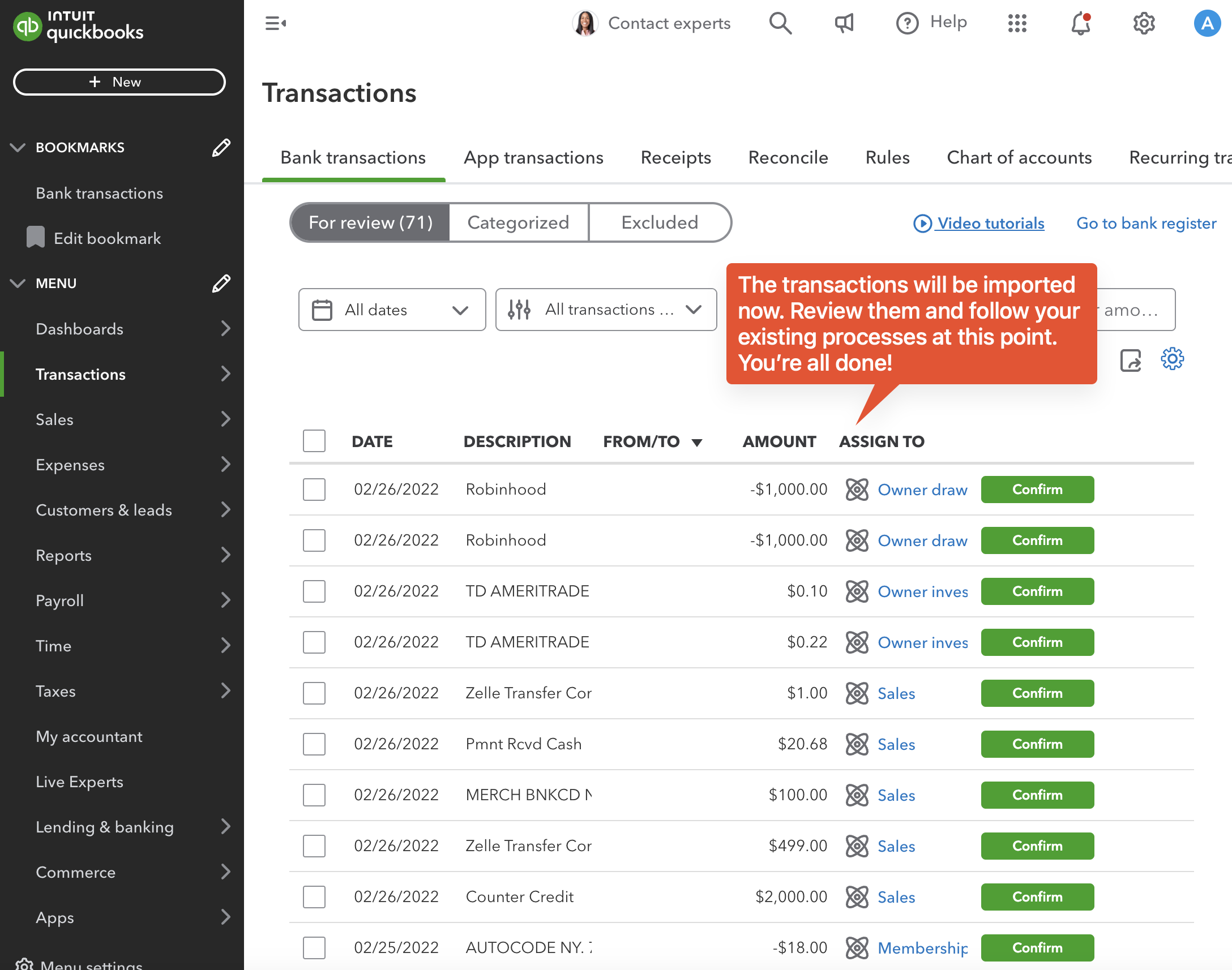
Review imported transactions in QuickBooks
Final Thoughts
Converting PDF bank statements to CSV for QuickBooks is straightforward and quick with CapyParse. Our advanced OCR models make extraction fast and accurate, significantly reducing errors and saving valuable time. CapyParse effortlessly handles even complicated or scanned statements, delivering accurate results every time. Forget about manual data entry and focus more on your business with CapyParse PDF to CSV data extraction.
Ready to try CapyParse?
Sign up today and get 25 PDF to CSV conversions included in your free trial to see how much time you can save.
Sign Up FreeCredit card required. Cancel anytime.